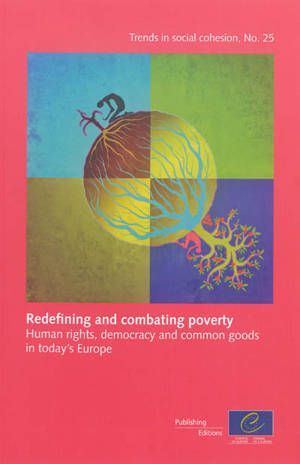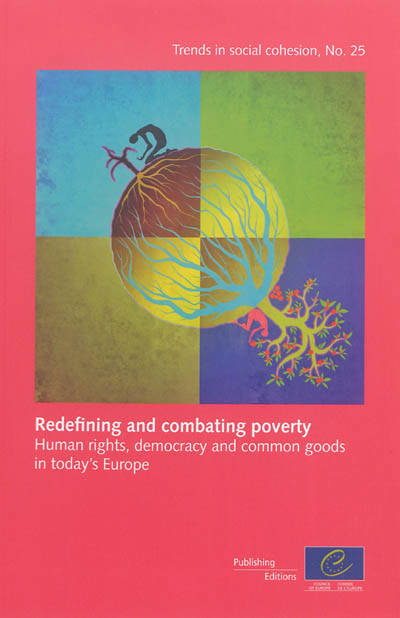
- Retrait gratuit dans votre magasin Club
- 7.000.000 titres dans notre catalogue
- Payer en toute sécurité
- Toujours un magasin près de chez vous
- Retrait gratuit dans votre magasin Club
- 7.000.0000 titres dans notre catalogue
- Payer en toute sécurité
- Toujours un magasin près de chez vous
Redefining and combating poverty
human rights, democracy and common goods in today's Europe
Conseil de l'EuropeDescription
We are at a point in history where economic inequalities are more widespread each
day. The situation of extreme poverty experienced by the majority of the populations
in developing countries ("Third World" countries) often coincides with an absence
of democracy and the violation of the most fundamental rights. But in so-called
"First World" countries a non-negligible proportion of inhabitants also live in
impoverished conditions (albeit mainly "relative" poverty) and are denied their
rights. The European situation, which this publication aims to analyse, is painful:
the entire continent is afflicted by increasing poverty and consequently by the
erosion of living conditions and social conflicts.
The economic and financial crisis has resulted in the loss of millions of jobs, and
created job insecurity for many still working. Economic insecurity raises social tensions,
aggravating xenophobia, for instance. Yet the economic and financial crisis could
present a good opportunity to rethink the economic and social system as a whole.
Indeed, poverty in modern societies has never been purely a question of lack of
wealth.
It is therefore urgent today to devise a new discourse on poverty. In pursuit of this
goal, the Council of Europe is following up this publication in the framework of the
project "Human rights of people experiencing poverty", co-financed by the European
Commission.
Spécifications
Parties prenantes
- Auteur(s) :
- Editeur:
Contenu
- Nombre de pages :
- 400
- Langue:
- Anglais
Caractéristiques
- EAN:
- 9789287173362
- Date de parution :
- 02-10-13
- Format:
- Livre broché
- Dimensions :
- 160 mm x 240 mm

Les avis
Nous publions uniquement les avis qui respectent les conditions requises. Consultez nos conditions pour les avis.






